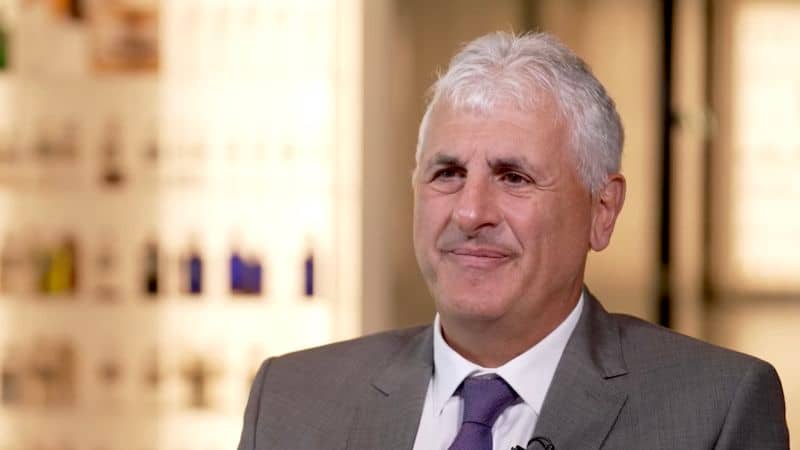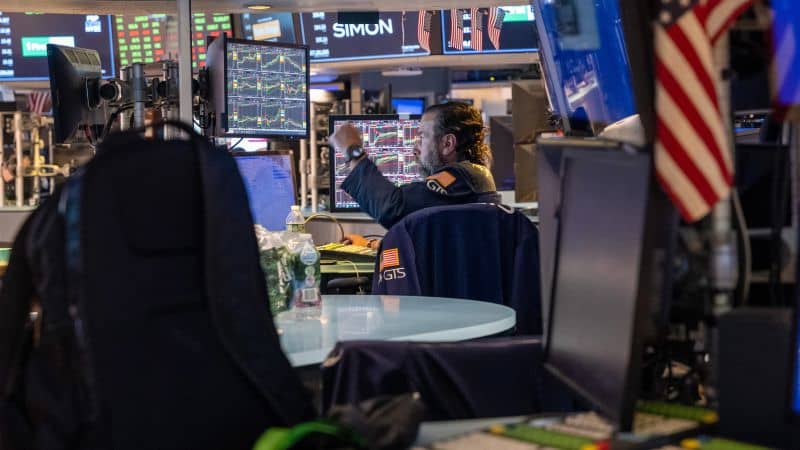Editor’s Note — Coronavirus cases are in flux across the globe. Health officials caution that staying home is the best way to stem transmission until you’re fully vaccinated. Below is information on

London
CNN
—
When Africa needs medicines, all too often the continent must look abroad.
African nations consume about 25% of vaccines produced globally, but import nearly 99% of their supply, according to the African Union Development Agency. For packaged medicines, only 36% of demand is produced locally, and just 3% is supplied by regional trade, according to the World Economic Forum.
Of the roughly 600 manufacturers of packaged medicines operating on the continent, South Africa’s Aspen Pharmacare is one of the largest, with more than 9,000 employees in over 50 countries. CEO Stephen Saad discussed the future of the pharmaceutical sector in Africa, and what lessons Aspen Pharmacare has learned from the Covid-19 pandemic, with CNN’s Eleni Giokos.
The following interview has been edited for length and clarity.
During the pandemic, we’ve seen a spotlight on the inequalities that exist on the continent in the pharmaceutical sector. Aspen has had a very strong commercial presence across Africa and now you’re moving up the value chain. Certainly Covid has catalyzed a lot of work that you’re doing. Tell me what you’re up to.
Saad: You mentioned inequalities. [Covid] really sparked the world’s attention to say, ‘Hey, this doesn’t seem right.’ We were very proud to be able to deliver vaccines to the continent in the quantities that we did, but the reality of Covid was that Africa didn’t get vaccinated. But what we’ve learned — whether it was Aids or multi-drug-resistant TB — is that we have to be strong regionally. We have really doubled down and instead of saying, ‘Look we’ve lost the Covid vaccine volumes and so we’re closing up,’ we’ve actually put [in] even more capacity. We’re committed to one person one vaccine in Africa and we’re working very hard towards that process.
If I had to ask you to describe what the pharmaceutical sector looks like right now in Africa, what would your answer be?
The answer is simple. When Covid came and Africa needed vaccines, over 90% of the vaccines were supplied by India — and that wasn’t great. At the end of the day, you can’t ask politicians from other countries to supply someone else before them. I don’t think anybody wants Africans to suffer, but the reality is when the borders close, whether it was Europe or India, they looked after their own population first. If it hadn’t been for Aspen, there would have been no vaccines made in Africa for the continent.
There’s a lot of money going into it now, there’s a lot of investment, there are many initiatives — many of them government-driven. We, off our own bat, have decided that we want to be a source not just of vaccines but biologicals — we would really like to be assisting in oncology, diabetes. We’ve got a lot that we would like to do across the continent to make sure we get access, because there are so many diseases that are just so under-serviced.
The World Trade Organization has done a lot on the policy front for Africa. The Continental Free Trade Area will hopefully make it a lot easier for cross-border trade in the pharmaceutical space. What challenges do you face?
There are numerous challenges. We have facilities in Accra [Ghana], Dar-es-Salaam [Tanzania], Nairobi [Kenya] … It is not always easy to get registrations approved. You decide not to put medicine in Kenya, for example, because of the cost of registration and the time taken. Whereas if it was already registered, we’d be exporting manufacturing into one of those territories.
It’s not so much a tariff issue or a trade issue, this is really a regulatory issue, where your medicine is required to be registered in a specific country in a specific way. For example, you can register a product across Europe [via] a central regulatory body. I think that is something that Africa should also consider.
Even though you say you’re doing good, you still have to make money. How do you balance out all of these factors?
There is this [misconception] that for you to supply cost-affordably means that it’s not very profitable. So much is about economies of scale. I remember when we did ARVs [antiretrovirals, used to treat HIV] and we were desperately trying to cut the price by nearly 90%. We got some fantastic pricing from everyone, but we still made a loss. The decision we made was, let’s go for it. At worst we would have a pretty expensive social investment project, but we backed ourselves that with increased volumes we would be able to reduce pricing. That’s what happened — the volumes came in, the prices, the technologies, and it became affordable. So sometimes you just have to go in and do it. I can’t tell you it was an exact science, but I do believe there’s a balance to be had.
I do think the world acknowledges that there are people that can pay and there are people that can’t pay. To deny people that can’t pay simply because they don’t have money is not a model that’s sustainable.
Don't Miss
‘Putin is a killer,’ says Ukraine goalkeeper as he sends a message of hope to his country Shaktar Donetsk and
Heavy snow and blizzard conditions will continue to blast portions of the Midwest. Strong winds will also ramp up across
You may have never heard of PFAS, but you likely have these potentially dangerous chemicals inside your body. CNN’s Dr.
You may have never heard of PFAS, but you likely have these potentially dangerous chemicals inside your body. CNN’s Dr. Sanjay Gupta explains.
Don't Miss
What to know about the Trump indictment on the eve of his court appearance Source link
London CNN — When Africa needs medicines, all too often the continent must look abroad. African nations consume about 25%
A “Help Wanted” sign is seen at a Golden Krust location on June 7 in the Flatbush neighborhood of Brooklyn

Editor’s Note — Coronavirus cases are in flux across the globe. Health officials caution that staying home is the best way to stem transmission until you’re fully vaccinated. Below is information on what to know if you still plan to travel, last updated on September 15.
The basics
There are no current Covid-related restrictions on international travel to France, although the country has had some of the most stringent Covid-19 restrictions in the world, including three lockdowns. While a few safety measures remain in place, the vast majority of restrictions have been eased.
What’s on offer
The historic boulevards of Paris, the fashionable sweep of La Croisette in Cannes and the rolling lavender fields and vineyards of Provence. France remains one of the world’s most enduring tourist destinations.
With superb food, even better wine and landscapes and cities to satisfy every kind of traveler, it never disappoints.
Who can go
As of August 1, there are no Covid-19 related travel restrictions for France. This means travelers are no longer required to present proof of vaccination, complete a sworn statement before arrival or show proof of a negative PCR or antigen test, regardless of their vaccination status.
The same rules apply for travel between mainland France and French overseas territories.
“Faced with the new phase of the pandemic, the border health control system is lifted, in accordance with the law putting an end to the exceptional regimes created to fight against the epidemic linked to Covid-19,” reads a statement from the French Ministry of the Interior and Overseas.
“The government retains until 21 January 2023 the possibility of activating ’emergency brake’ measures for a maximum period of two months, after consulting the high authority for health in the event of an appearance and circulation of a new variant of Covid-19 likely to constitute a serious health threat or, in overseas territories, in the event of a risk of saturation of the health system.”
What are the restrictions?
As stated above, there are currently no Covid-19 related restrictions on international travel to France.
What’s the Covid situation?
France has been one of the hardest hit countries in Europe, with over 35 million cases and 155,651 deaths as of September 15.
The emergence of the Omicron variant towards the end of 2021 brought about yet another rise in infections, with over 2.5 million infections recorded in one week towards the end of January 2022. The number of Covid-19 cases in the country would later stabilize. However, Covid-19 infections have been on the increase yet again.
There were 155,068 cases in the week leading up to September 15. Over 81.2% of the population is fully vaccinated.
What can visitors expect?
Masks or face coverings are no longer compulsory indoors or on public transport. However, officials have advised people to start wearing masks in crowded spaces once again due to rising Covid-19 cases in the country.
Since March, a vaccine pass has no longer been required to enter indoor venues, aside from hospitals and care homes.
Useful links
Our latest coverage
Joe Minihane, Julia Buckley and Tamara Hardingham-Gill contributed to this report
Don't Miss
What to know about the Trump indictment on the eve of his court appearance Source link
London CNN — When Africa needs medicines, all too often the continent must look abroad. African nations consume about 25%
A “Help Wanted” sign is seen at a Golden Krust location on June 7 in the Flatbush neighborhood of Brooklyn










